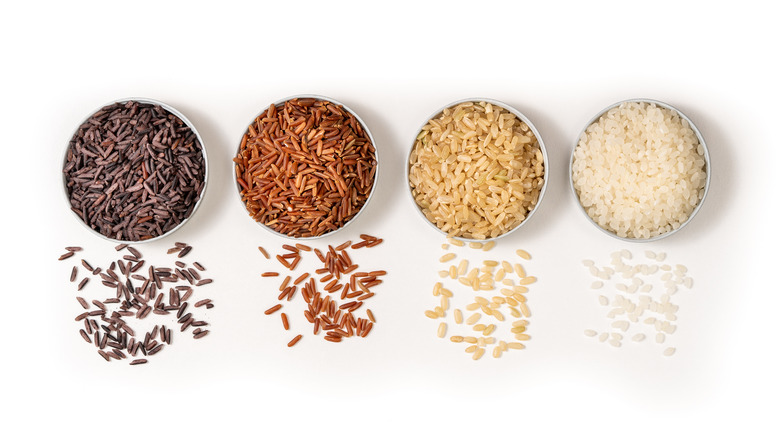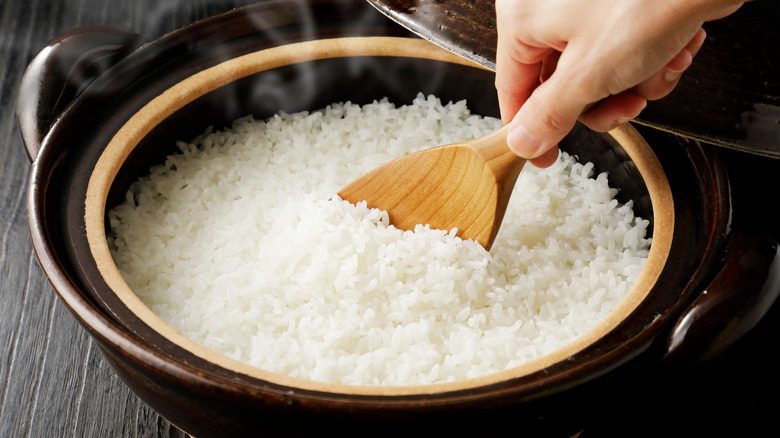What Happens To Your Body When You Eat Expired Rice
Rice is an important dish across many cultures. Not only are these pillowy clouds of carbohydrates extremely tasty, but rice is also versatile. In fact, it comes in a wide array of types and colors, such as white, brown, jasmine, red, wild, and even black (via Tasting Table). With so many different types of rice, you may be wondering: does rice expire? Or better yet, what happens to your body if you accidentally eat expired rice? If you stock up regularly on this staple, here's what you need to know.
According to a 2019 study published in Food Science and Biotechnology, the nutritional quality of rice may drop when expired due to the increased mold population. This is because expired rice is contaminated by different mold or fungi, such as aspergillus tritici and cladosporium cladosporioides. Additionally, mycotoxins may arise from these fungi contaminants. And when mycotoxins are ingested, this may lead to various symptoms, such as vomiting, food poisoning, abdominal pain, nausea, and an increased chance of cancer, shares Healthline. Other symptoms, depending on the type of mycotoxin, may damage the immune system and lungs, points out WebMD.
Even when cooked, certain mold populations may still survive. A different study published in the Journal of Food Protection reports that the bacteria, bacillus cereus, is able to survive and grow following the cooking process. In fact, bacillus cereus may lead to gastrointestinal diseases, such as diarrhea and emesis. Keep in mind, it can additionally cause vomiting and abdominal pain (per Healthline).
How to tell if rice has expired
Rice can have different shelf lives depending on its color and whether it's cooked or dry, points out Healthline. Therefore, the best way to avoid eating expired rice is to simply inspect it and be sure its been stored at the proper temperature.
According to the U.S. Department of Agriculture (USDA), uncooked brown rice has a shelf life of six months from the manufactured date when stored between 30 and 40 degrees Fahrenheit. In hotter temperatures, the shelf life drops to three months when stored between 50 and 70 degrees Fahrenheit. Before eating brown rice, consider checking the expiration date to see if it's safe to consume (via Healthline). In addition, look for discoloration, slimy textures, and unpleasant smells.
The shelf life for other uncooked rice, such as white, jasmine, basmati, wild, and arborio, is indefinite only if the rice is stored properly (via StillTasty). To maximize its life, uncooked rice should be placed in an airtight container and stored in a cool dry environment. When it comes to identifying if this rice has gone bad, Healthline suggests checking the rice for any bugs, color changes, and dampness. Be sure to look for any mold and weird textures as well. But if you're still worried that your rice may be expired, it's best to discard it.


